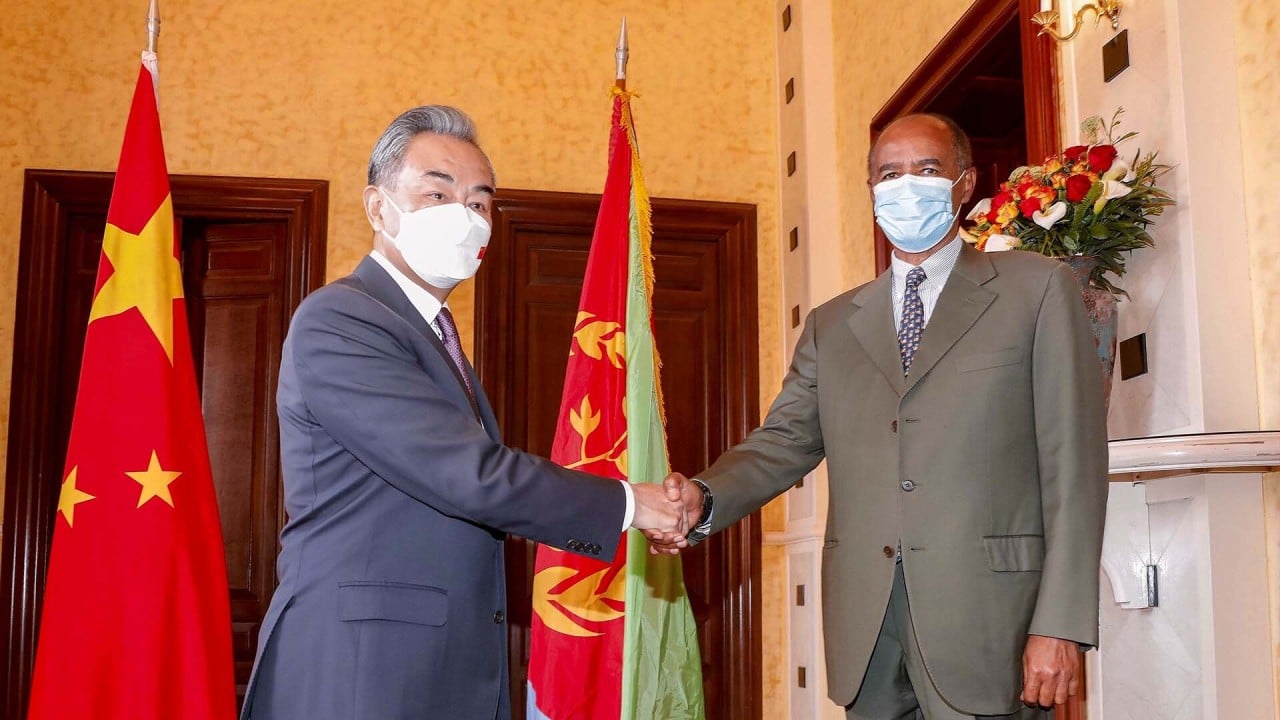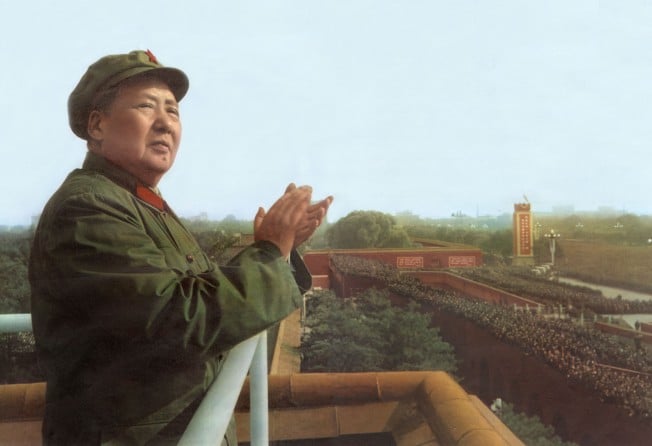
01:45
Top Chinese diplomat tours East Africa to promote peace, ensure stability for belt and road allies

A leadership school funded and built by the Chinese Communist Party to train political party officials in southern Africa has opened in Tanzania, as part of Beijing’s efforts to export its model of governance.
The Mwalimu Julius Nyerere Leadership School, for which China’s ruling party provided US$40 million in funding, was opened on Wednesday by Tanzanian President Samia Suluhu Hassan and several neighbouring countries’ leaders.
Located in Kibaha, near the port city of Dar es Salaam, it will serve political parties in the region and be a platform for China to enhance exchanges with them as a form of “party-to-party diplomacy”.
Initially, it will train leaders from pro-independence parties in South Africa, Mozambique, Angola, Namibia and Zimbabwe, as well as Tanzania.
Some of those, such as the Mozambique Liberation Front (FRELIMO) and the Zimbabwe African National Union, received support from China’s former leader Mao Zedong during their liberation struggle. China provided ideological and military training, and supported their guerilla warfare against colonial minority regimes.
Some of the parties’ military officials at that time were even trained in China, including Emmerson Mnangagwa, Zimbabwe’s current president, who attended a military academy in Nanjing in the 1960s.
President Hassan, chairwoman of the ruling Chama Cha Mapinduzi, said the school would also train young people to be patriotic, evaluate the progress made in the six countries since they won independence, and plan future growth.
“We want our parties to have well-organised leaders, strong leaders who know their discipline and values, who will understand, manage and educate the community about our ideology,” she said.
Chinese President Xi Jinping said in a congratulatory message on Wednesday that the school would “provide an important platform for the six parties to enhance their governance capacity and better lead their respective countries to achieve development and benefit their people”.
Xi said the Communist Party wanted to “strengthen the exchange of state governance experience with parties in Africa … and deepen pragmatic cooperation across the board”.
Before the pandemic, hundreds of officials of African parties would travel to China each year to learn the Communist Party’s political and economic model. The new school would allow that training to resume, according to Yun Sun, director of the Stimson Centre’s China programme in Washington.
The “exchange of experience” was, in reality, China instilling its model in foreign officials, she said.
“That’s why China financed the Nyerere institute,” Sun said. “China has had the training programmes for African leaders and officials for decades.”
She said the parties did not have to be indoctrinated with Communist Party ideology, but could learn from China’s experience on specific issues, such as law enforcement or digital surveillance.
In a testimony in 2020 to a commission that reports to the US Congress, Sun said China’s model combined political authoritarianism with capitalism and showed African countries that economic development and political stability could coexist without a democratic system.
China promoted the model in Africa through government fellowships and training for elites, she said.
Lina Benabdallah, a specialist in China-Africa relations at Wake Forest University in North Carolina, has done studies on China’s party-to-party diplomacy in Africa. She said parties such as Mozambique’s FRELIMO and South Africa’s African National Congress had maintained close ties with the Communist Party for decades.
“The school is modelled on [Chinese Communist Party] training schools, symbolising that closeness and the willingness to bring the CCP’s leadership style and training to the continent,” she said. “For the [Chinese Communist Party], it is appealing that its model is held in high regard, offering it legitimacy.”
David Shinn, a professor at George Washington University’s Elliott School of International Affairs, said the Communist Party would “provide some of the teachers at this institution, which will be a wonderful opportunity to pass on both party organisational techniques and ideology”.
“To varying degrees, all of these African parties have developed good relations with the [Chinese Communist Party] and already adapted some of its tactics and policies,” said Shinn, who previously served as the US ambassador in Ethiopia.
Mandira Bagwandeen, a University of Cape Town PhD candidate focusing on China-Africa relations, last year wrote in a report that China’s ruling party had formed ties with more than 600 parties and political organisations in about 160 countries and regions.
“The [Chinese Communist Party] cultivates support and consent for Beijing’s international ambitions and seeks to build all-weather friendships,” Bagwandeen wrote.
“Moreover, by cultivating closer ties with foreign political elites and organisations, China (through its chequebook diplomacy) also ensures that many countries turn a blind eye to some of its egregious domestic policies, and support its one-China policy.”
She said that through training and exchanges, Beijing had sought to spread aspects of its “socialism with Chinese characteristics” among Africa’s elites.
Nevertheless, observers say that China does not force African parties to adopt what they are told.
“China states that the training programmes are strictly exchanges of opinions rather than an imposition of the China model,” Sun said in her testimony.
It invites officials to study Chinese governance, but whether they adopt it is “at their own discretion”, she said.